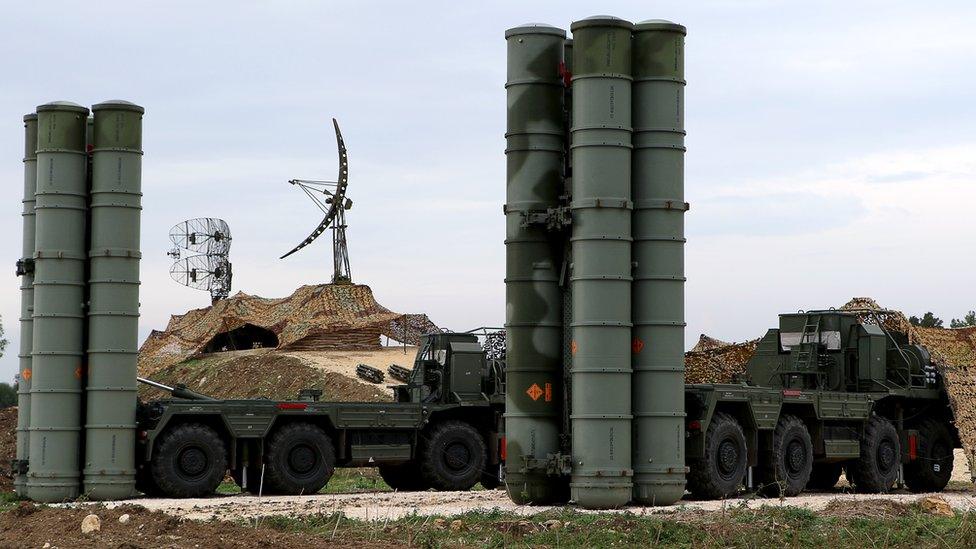Putin: Turkey 'will regret' downing Russian bomber in Syria
- Published
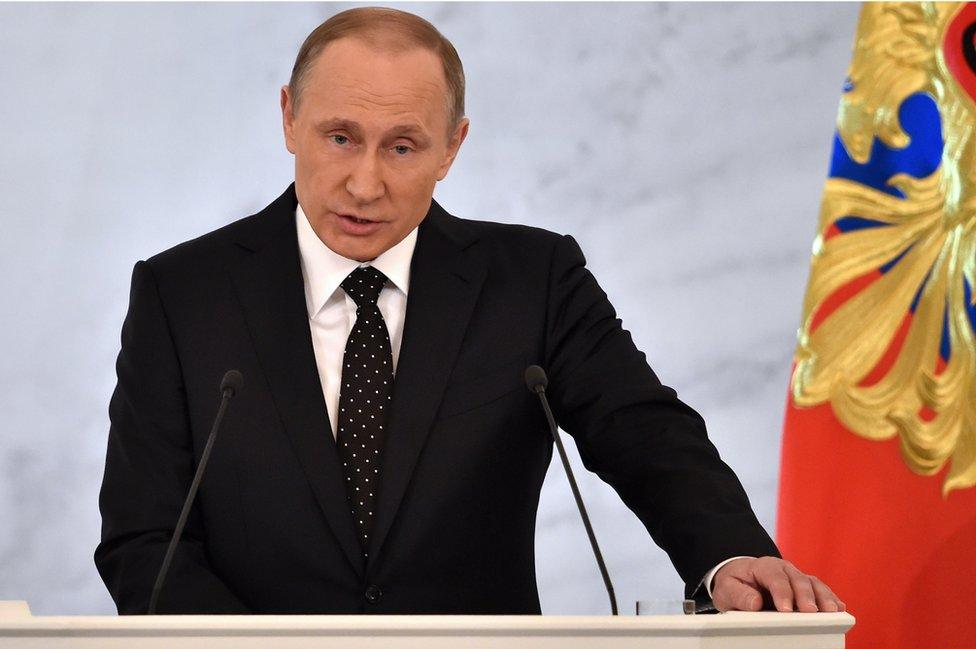
President Putin began his address by praising Russian servicemen fighting in Syria
Russian President Vladimir Putin has castigated Turkey's leaders, warning that they will regret shooting down a Russian Su-24 bomber in Syria.
In a state of the nation speech, broadcast live on Russian television, he said that "if anyone thinks Russia's reaction will be limited to trade sanctions, they are deeply mistaken".
"We'll remind them again what they did - they will regret it."
Russia's fight against "terrorists" came top in his speech to parliament.
At the start he praised the widows of the two Russian servicemen killed in the Su-24 incident in Syria. The widows were sitting in the Kremlin audience for his speech.
There was also a minute's silence for Russian victims of terrorism, including the 224 who died when a bomb blew up a Russian airliner over Egypt's Sinai desert on 31 October.
Jihadist militants from Islamic State (IS) said their "Sinai Province" associates had planted the bomb.
'Punishment from Allah'
In his speech Mr Putin again accused the Turkish government of sheltering and covertly supporting IS militants.
Turkey insists that its F-16 fighters shot down the Su-24 because the bomber had trespassed into its airspace.
Mr Putin scorned them, saying "probably Allah alone knows why they did it.
"And evidently Allah decided to punish the ruling clique in Turkey, by depriving it of any reason or logic."
He said he was making a clear distinction between the Turkish leadership and Russia's "many longstanding and reliable friends in Turkey".

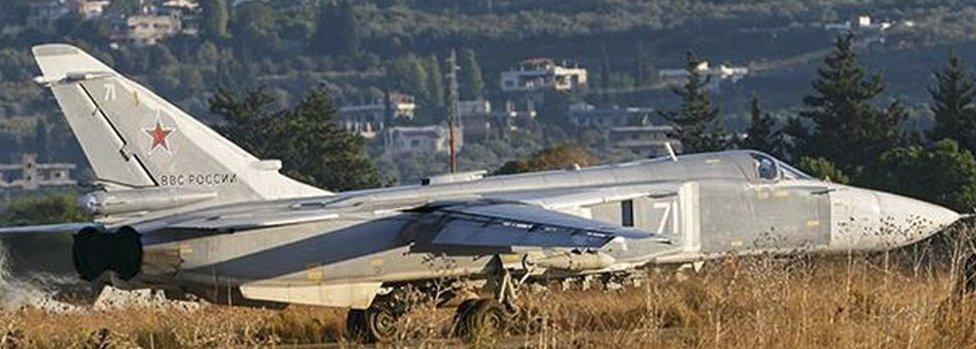
Su-24s are among more than 60 Russian aircraft carrying out sorties in Syria

Russia has announced wide-ranging sanctions against Turkey - a Nato member - because of the 24 November border clash, including an import ban on Turkish fruit, vegetables and some other foods.
Russians can no longer go on package holidays to Turkey - until this month the top foreign destination for Russian tourists.
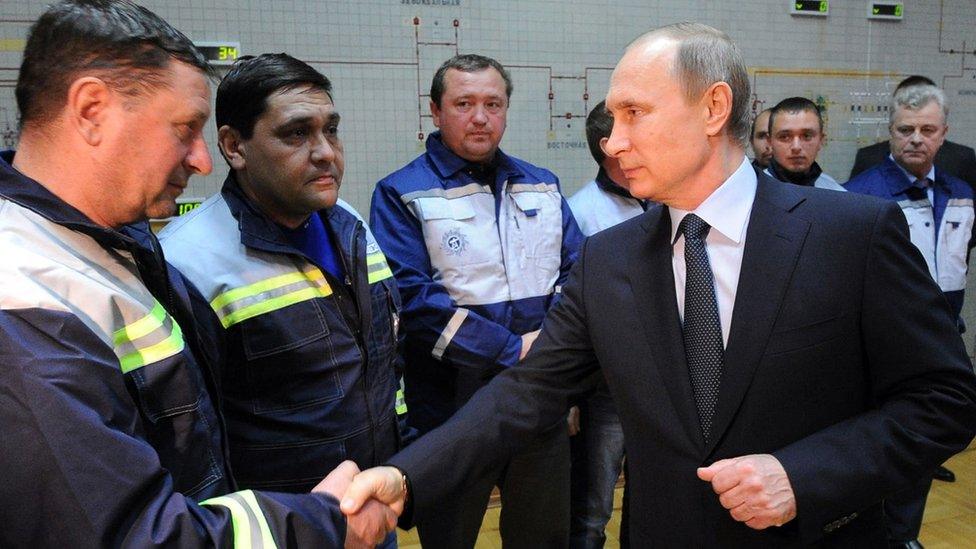
Mr Putin launched an undersea link to supply Crimea with Russian electricity
In his speech Mr Putin made a direct connection between Russia's annexation of Crimea last year and the current fight against terrorism, saying Russia was showing its "confidence" as a "strong, independent state, with a 1,000-year-old history".
He used the word "reunited" for Russia's annexation of the Ukrainian peninsula, which was condemned internationally.
Hours earlier he launched a Crimea-Russia undersea electricity link, responding to a power blackout that hit Crimea 10 days ago.
Turkish anger
The Turkish Prime Minister, Ahmet Davutoglu, has dismissed Russian allegations that Turkey was buying oil from IS as "Soviet-style propaganda".
And Turkish President Recep Tayyip Erdogan called it "slander". Later he said Russia was illegally buying IS oil, through a Syrian dealer with a Russian passport and "a famous Russian chess player".
As the Russia-Turkey war of words continued, Russian Foreign Minister Sergei Lavrov met his Turkish counterpart Mevlut Cavusoglu in Serbia on Thursday, on the sidelines of an Organization for Security and Co-operation in Europe (OSCE) meeting.
Russia says its bombers are attacking IS and other jihadist groups in Syria, helping the government forces of President Bashar al-Assad.
However, Western analysts and Syrian rebel sources say most of the Russian bombing has targeted anti-Assad groups who are not jihadists.
After the Su-24 incident Russia sent advanced S-400 anti-aircraft missiles to protect its planes in Syria.
"We know who in Turkey is stuffing his pockets and letting the terrorists prosper," Mr Putin said.
On Wednesday Russia's defence ministry displayed satellite images it said showed columns of trucks loaded with oil crossing from IS territory in Iraq and Syria into Turkey.
Comparing Russia's campaign with the World War Two struggle against Nazism, Mr Putin said "we are facing a destructive, barbaric ideology… we need a single powerful fist, a united front" against IS.
"Each civilised state should contribute to routing the terrorists," he said.
- Published3 December 2015
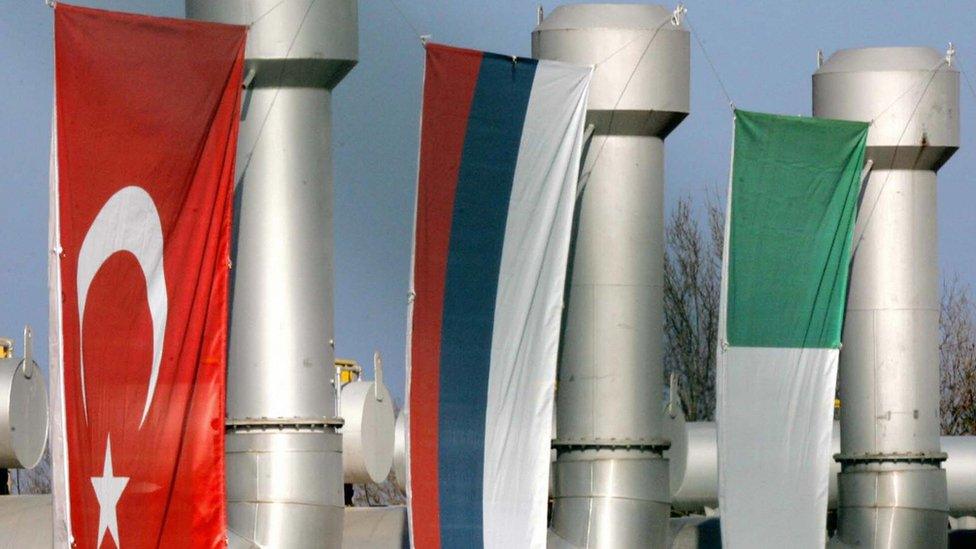
- Published17 March 2024
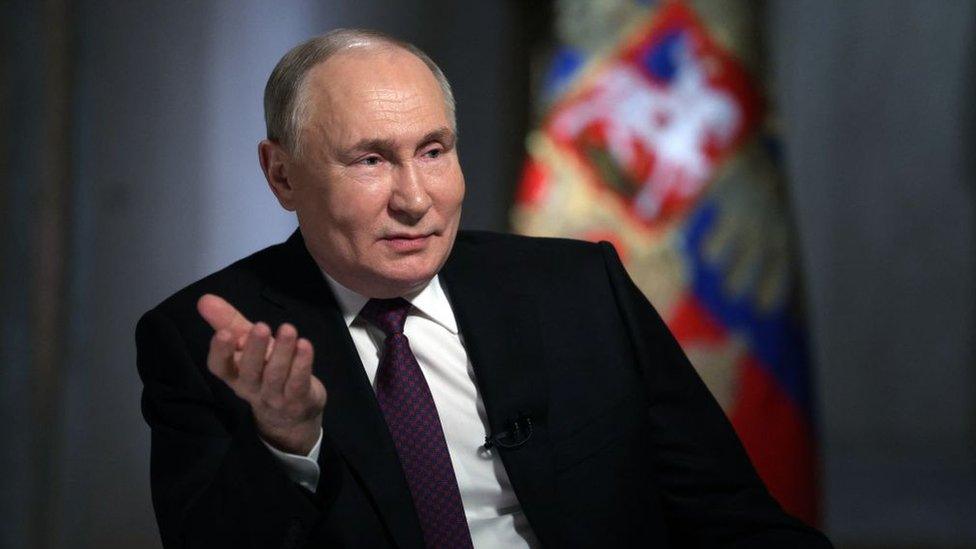
- Published27 March 2015
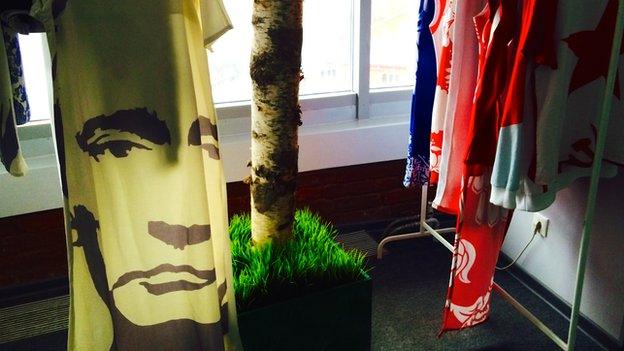
- Published1 December 2015
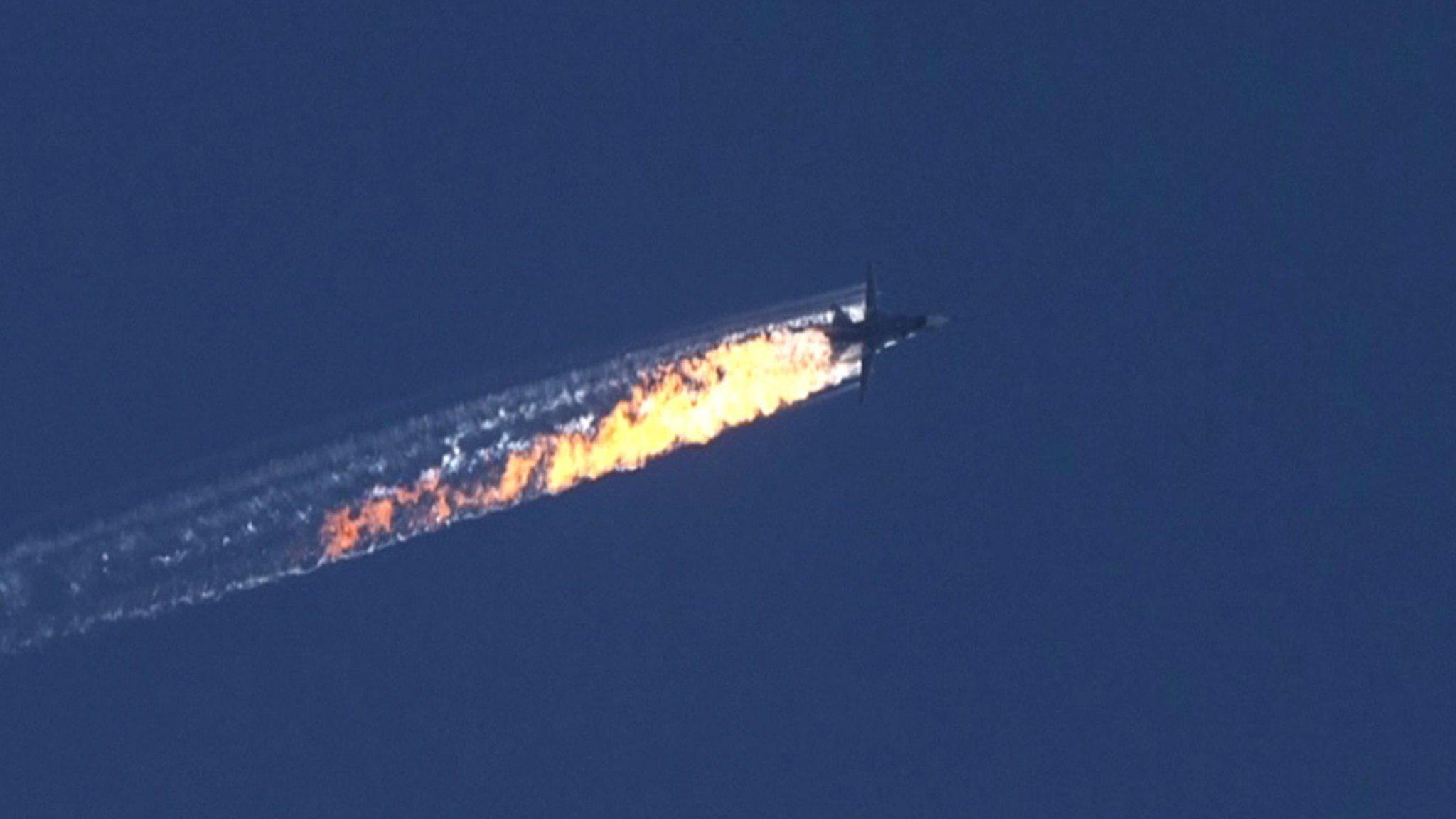
- Published1 December 2015
